#industrial prison complex
Explore tagged Tumblr posts
Text
Using food as punishment is cruel, unusual, and inhumane. Especially when said punishment has caused vomiting and intestinal bleeding. But prisons continue to get away with it because despite the fact that it was made to be as unappetizing as possible, it was also made to be as nutrient dense as possible so that inmates couldn't say that they're lacking nutrition in their punishment food.
These are human fucking beings, and they don't deserve subhuman treatment.
Add onto that a large portion of inmates are mentally ill and several neurological differences result in the body reacting negatively to gross food (vomiting on bad food taste and texture).
-fae
61 notes
·
View notes
Text
3 notes
·
View notes
Text
This is a freestyle performance by BAP, I love it. Source: https://youtu.be/fqMmdbwZOyo
2 notes
·
View notes
Text
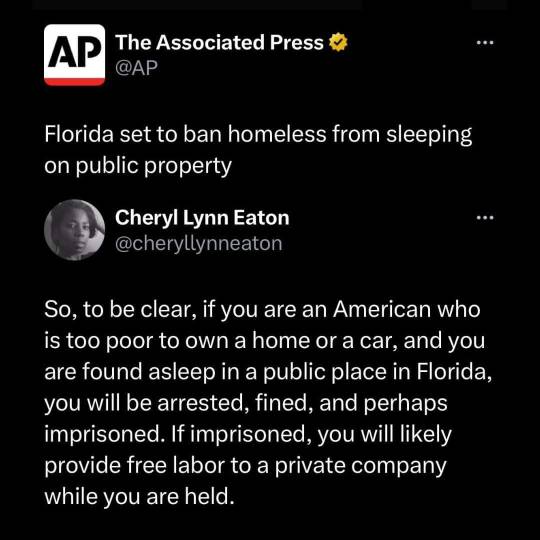
And who enforces this? Is it just a few bad apples, or is it all cops?
How hard is it for them to find cops willing to enforce this? Do they have to sift through hundreds of heroic cops who refuse until they find the one cop who's monstrous enough to enforce this, or do they easily find cops willing to enforce this because monstrous cops are everywhere and being a monster is part of the job?
"All cops are bad" is not a stereotype. It's literally a requirement for the job that every single one knew about.
29K notes
·
View notes
Text
PLEASE support The Innocence Project. Let the state sanctioned murder of Marcellus Williams radicalize you into caring about incarcerated people. Don’t let those in office that allow for this to defeat you. Incarcerated people are among the most violated and exploited class of people in the United States. We have built a justice system that benefits off of the mass incarceration of marginalized people. Incarceration is used to disenfranchise people. It is used for modern day slavery. Anyone can become incarcerated. It is the quickest and easiest way for your government to strip you of your rights.
20K notes
·
View notes
Text

#anti capitalism#scotus#news#democrats#republicans#politics#conservatives#britain#supreme court#biden#trump#usa#prison industrial complex#late stage capitalism
8K notes
·
View notes
Text
Studies about how giving people money is more effective at stopping homelessness than anything else are never actually going to make conservatives support UBI or anything like that. Under capitalism, homelessness is necessary as a threat to keep workers in line; you're more likely to accept bad wages and exploitation and abuse when the alternative is being thrown out into the street.
Homelessness is the stick that keeps the mule moving. The person riding the mule knows that the stick hurts it, that's the entire point.
#not even getting into things like the prison industrial complex#and how is used to funnel homeless people into prisons to be used as slave labor
7K notes
·
View notes
Text

Article | Paywall Free
"Maryland Gov. Wes Moore issued a mass pardon of more than 175,000 marijuana convictions Monday morning [June 17, 2024], one of the nation’s most sweeping acts of clemency involving a drug now in widespread recreational use.
The pardons forgive low-level marijuana possession charges for an estimated 100,000 people in what the Democratic governor said is a step to heal decades of social and economic injustice that disproportionately harms Black and Brown people. Moore noted criminal records have been used to deny housing, employment and education, holding people and their families back long after their sentences have been served.
[Note: If you're wondering how 175,000 convictions were pardoned but only 100,000 people are benefiting, it's because there are often multiple convictions per person.]
A Sweeping Act
“We aren’t nibbling around the edges. We are taking actions that are intentional, that are sweeping and unapologetic,” Moore said at an Annapolis event interrupted three times by standing ovations. “Policymaking is powerful. And if you look at the past, you see how policies have been intentionally deployed to hold back entire communities.”
Moore called the scope of his pardons “the most far-reaching and aggressive” executive action among officials nationwide who have sought to unwind criminal justice inequities with the growing legalization of marijuana. Nine other states and multiple cities have pardoned hundreds of thousands of old marijuana convictions in recent years, according to the National Organization for the Reform of Marijuana Laws. Legalized marijuana markets reap billions in revenue for state governments each year, and polls show public sentiment on the drug has also turned — with more people both embracing cannabis use and repudiating racial disparities exacerbated by the War on Drugs.
The pardons, timed to coincide with Wednesday’s Juneteenth holiday, a day that has come to symbolize the end of slavery in the United States, come from a rising star in the Democratic Party and the lone Black governor of a U.S. state whose ascent is built on the promise to “leave no one behind.”
The Pardons and Demographics
Derek Liggins, 57, will be among those pardoned Monday, more than 16 years after his last day in prison for possessing and dealing marijuana in the late 1990s. Despite working hard to build a new life after serving time, Liggins said he still loses out on job opportunities and potential income.
“You can’t hold people accountable for possession of marijuana when you’ve got a dispensary on almost every corner,” he said.
Nationwide, according to the ACLU, Black people were more than three times more likely than White people to be arrested for marijuana possession. President Biden in 2022 issued a mass pardon of federal marijuana convictions — a reprieve for roughly 6,500 people — and urged governors to follow suit in states, where the vast majority of marijuana prosecutions take place.
Maryland’s pardon action rivals only Massachusetts, where the governor and an executive council together issued a blanket pardon in March expected to affect hundreds of thousands of people.
But Moore’s pardons appear to stand alone in the impact to communities of color in a state known for having one of the nation’s worst records for disproportionately incarcerating Black people for any crimes. More than 70 percent of the state’s male incarcerated population is Black, according to state data, more than double their proportion in society.
In announcing the pardons, he directly addressed how policies in Maryland and nationwide have systematically held back people of color — through incarceration and restricted access to jobs and housing...
Maryland, the most diverse state on the East Coast, has a dramatically higher concentration of Black people compared with other states that have issued broad pardons for marijuana: 33 percent of Maryland’s population is Black, while the next highest is Illinois, with 15 percent...
Reducing the state’s mass incarceration disparity has been a chief goal of Moore, Brown and Maryland Public Defender Natasha Dartigue, who are all the first Black people to hold their offices in the state. Brown and Dartigue have launched a prosecutor-defender partnership to study the “the entire continuum of the criminal system,” from stops with law enforcement to reentry, trying to detect all junctures where discretion or bias could influence how justice is applied, and ultimately reform it.
How It Will Work
Maryland officials said the pardons, which would also apply to people who are dead, will not result in releasing anyone from incarceration because none are imprisoned. Misdemeanor cannabis charges yield short sentences and prosecutions for misdemeanor criminal possession have stopped, as possessing small amounts of the drug is legal statewide.
Moore’s pardon action will automatically forgive every misdemeanor marijuana possession charge the Maryland judiciary could locate in the state’s electronic court records system, along with every misdemeanor paraphernalia charge tied to use or possession of marijuana. Maryland is the only state to pardon such paraphernalia charges, state officials said...
People who benefit from the mass pardon will see the charges marked in state court records within two weeks, and they will be eliminated from criminal background check databases within 10 months."
-via The Washington Post, June 17, 2024. Headings added by me.
#maryland#united states#us politics#cannabis#cannabis community#marijuana#pot#wes moore#democrats#voting matters#mass incarceration#prison#prison industrial complex#racism#discrimination#oppression#policing#social issues#pardons#legal system#background checks#prison system#good news#hope
1K notes
·
View notes
Text


Source


Source

Source
#abolish prisons#capitalism#prison industrial complex#politics#government#the left#progressive#current events#news#end capitalism#criminal justice system#health#health care
352 notes
·
View notes
Text
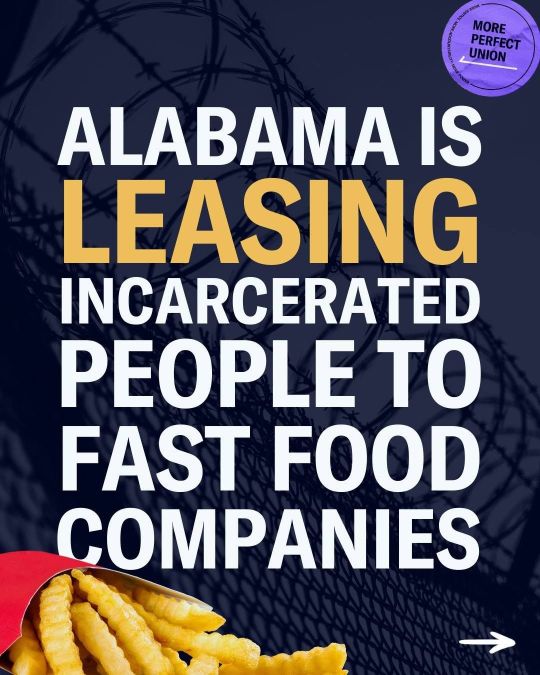

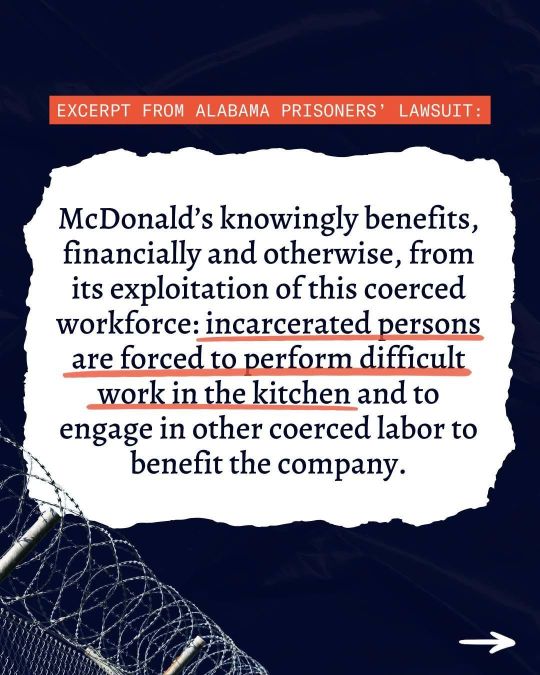




america has never been great and will never be great. it's a failed experiment from the start. and don't get it twisted, this is happening everywhere in this country.
743 notes
·
View notes
Text
// as I work towards completing my English phd, this makes me incredibly sad. for many, many, many reasons.
By: Brooke Allen
Published: Mar 5, 2023
Many of us who care deeply about education in the humanities can only feel despair at the state of our institutions of “higher” learning. Enrollment in these subjects is plummeting, and students who take literature and history classes often come in with rudimentary ideas about the disciplines. Interviewed in a recent New Yorker article, Prof. James Shapiro of Columbia said teaching “Middlemarch” to today’s college students is like landing a 747 on a rural airstrip. Technology such as messaging apps, digital crib sheets and ChatGPT, which will write essays on demand, has created a culture of casual cheating.
Never have I been more grateful to teach where I do: at a men’s maximum-security prison. My students there, enrolled in a for-credit college program, provide a sharp contrast with contemporary undergraduates. These men are highly motivated and hard-working. They tend to read each assignment two or three times before coming to class and take notes as well. Some of them have been incarcerated for 20 or 30 years and have been reading books all that time. They would hold their own in any graduate seminar. That they have had rough experiences out in the real world means they are less liable to fall prey to facile ideologies. A large proportion of them are black and Latino, and while they may not like David Hume’s or Thomas Jefferson’s ideas on race, they want to read those authors anyway. They want, in short, to be a part of the centuries-long conversation that makes up our civilization. The classes are often the most interesting part of these men’s prison lives. In some cases, they are the only interesting part.
Best of all from my selfish point of view as an educator, these students have no access to cellphones or the internet. Cyber-cheating, even assuming they wanted to indulge in it, is impossible. But more important, they have retained their attention spans, while those of modern college students have been destroyed by their dependence on smartphones. My friends who teach at Harvard tell me administrators have advised them to change topics or activities several times in each class meeting because the students simply can’t focus for that long.
My students at the prison sit through a 2½-hour class without any loss of focus. They don’t yawn or take bathroom breaks. I have taught classes on the Enlightenment, the Renaissance, Romanticism, George Orwell, South Asian fiction. We’ve done seminars on Adam Smith and Alexis de Tocqueville. Together we have read Montaigne, Rousseau, Keats, Erasmus, Locke, Montesquieu, Wollstonecraft, Byron, Goethe, Petrarch, Rabelais, Saadat Hasan Manto, Rohinton Mistry. The students write essays in longhand; during the pandemic I taught a correspondence class via snail mail. Some of them do read “Middlemarch,” and their teacher finds the experience far more gratifying than trying to land a 747 on a rural airstrip. We encourage them to treat different societies in history as experiments in time travel, where they try to understand the mores of particular eras as though from the inside. They are very open to that approach, unlike university students, who tend see the past only as one long undifferentiated era of grievous unenlightenment: not just one damn thing after another, but one damn oppressive thing after another.
Like students at elite institutions, most of my incarcerated scholars are politically liberal. Unlike them, many are religious, and that proves surprisingly enriching in studying these authors, who would have been amazed to know they would one day be read by classrooms full of atheists. One of my more devout students, a Protestant who converted to Islam, was so distressed by Voltaire’s disrespect for established creeds that he had to be comforted by other class members. They informed him that he was exactly the sort of person Voltaire was aiming his polemic at, and therefore he could understand the force of it in a way his irreligious peers couldn’t.
My hours at the prison are rich in such moments. In many ways, it is the Platonic ideal of teaching, what teaching once was. No faculty meetings, no soul-deadening committee work, no bloated and overbearing administration. No electronics, no students whining about grades. Quite a few of our students are serving life sentences and will never be able to make use of their hard-won college credits. No student debt, no ideological intolerance, no religious tests—whoops, I mean mandatory “diversity” statements. And in our courteous, laughter-filled classroom there is none of the “toxic environment” that my friends in the academy complain about, and that I experienced during my own college teaching career.
If prison inmates, many of whom have committed violent crimes, can pay close attention for a couple of hours, put aside their political and personal differences, support one another’s academic efforts, write eloquent essays without the aid of technology and get through a school year without cheating, is it too much to ask university students to do the same? Or ask professors to try to create an atmosphere where these habits can prevail? Perhaps prison education can serve as a model of how to return to true learning and intellectual exchange.
[ Via: https://archive.ph/5YRih ]
==
The state of things.
54 notes
·
View notes
Text

The government imprisons people so capitalists can use them as slaves.
But for some strange reason, people think capitalism is freedom and anything else is big government tyranny.
762 notes
·
View notes
Text
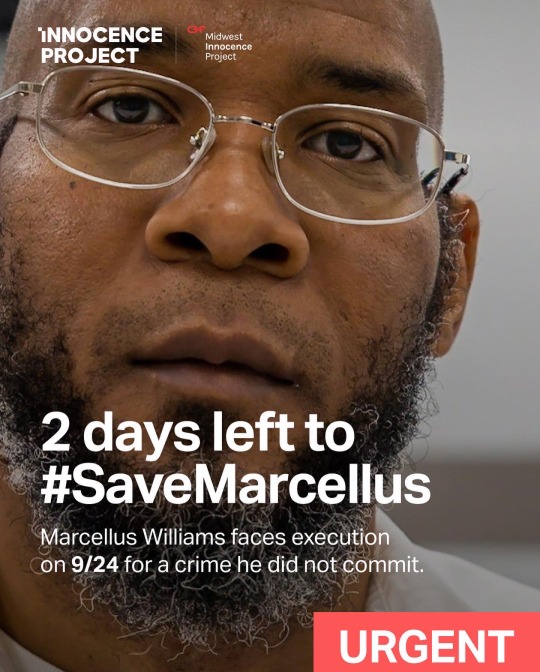
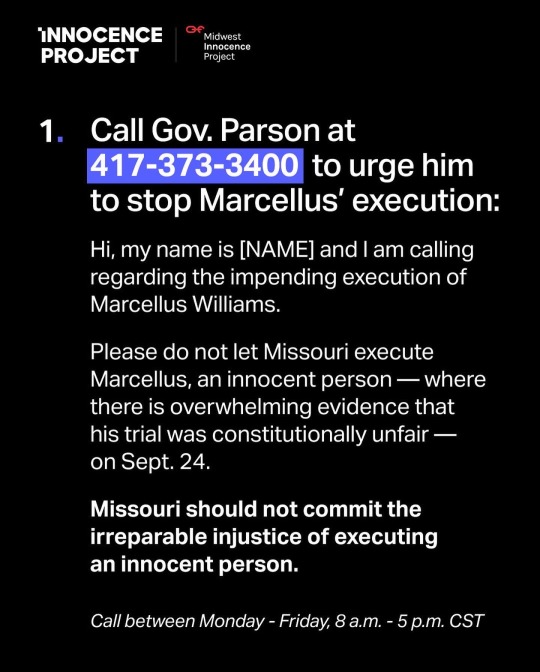
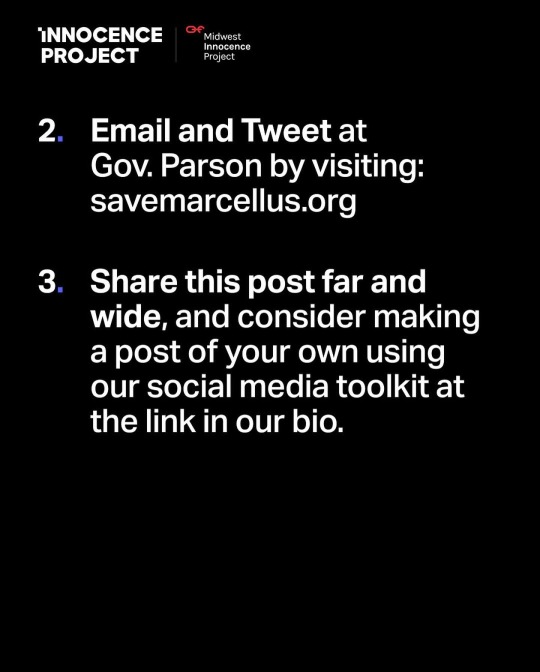
From @theinnocenceproject:
This is it. We only have 48 HOURS to stop Missouri from executing #MarcellusWilliams, an innocent man.
Every hour, every minute, every second is critical right now. And even though @GovParsonMO's office is closed today, we can’t let a single moment go by where we’re not urging him to take action. So today, we’re asking you to SHARE Marcellus’ story far and wide by creating your own post about him using the social media toolkit at the link in our bio, and include a call to action to sign our petition and call @GovParsonMO at 417-373-3400.
It is not too late for Gov. Parson to ensure that Missouri does not take an innocent man’s life.
#human rights#marcellus williams#stop the execution#death penalty#call to action#signal boost#black lives matter#prison industrial complex#Missouri#civil rights#the innocence project#justice#activism#urgent#capital punishment#no one is free until we are all free#prison abolition
183 notes
·
View notes
Text
hey y’all
Robert Roberson is about to be executed on October 17 in Texas. Yet another innocent person will face the death penalty, despite prejudicial testimony and an unproven theory.
please take the time to call or email using this form from Innocence Project. it takes like 2 minutes.
read more about his case and why the courts in Texas need to change here:
#robert roberson#abolition now#abolish the death penalty#texas#texas news#news#us news#gamers of tumblr#you know what to do#abolish the prison industrial complex
133 notes
·
View notes
Text
Talk abt second hand embarrassment u ever see a "No stupid questions" professor attempt to navigate a question that is in fact pretty stupid
#only week 2 watching my prof get fed up w this girl in my class 😭 i feel bad for everyone involved#im not talking abt earnest questions seeking understanding or clarification#this girl was explaining the prison industrial complex to an ethnic studies professor. and talked over him#and he had already gone over those same points she was making more cohesively earlier in the same lecture#maddenijg
132 notes
·
View notes
Text
"Expanding freedom and opportunity to millions
Over a decade ago, researchers, policymakers, journalists, and individuals and family members harmed by prisons and jails helped define American mass incarceration as one of the fundamental policy challenges of our time. In the years since, policymakers and voters in red, blue, and purple jurisdictions have advanced criminal justice reforms that safely reduced prison and jail populations, expanding freedom and opportunities to tens of millions of Americans.
After nearly forty years of uninterrupted prison population growth, our collective awareness of the costs of mass incarceration has fundamentally shifted–and our sustained efforts to turn the tide have yielded meaningful results.

Since its peak in 2009, the number of people in prison has declined by 24 percent (see figure 1). The total number of people incarcerated has dropped 21 percent since the 2008 peak of almost 2.4 million people, representing over 500,000 fewer people behind bars in 2022. Absent reforms, more than 40 million more people would have been admitted to prison and jail over this period. The number of people on probation and parole supervision has also dropped 27 percent since its peak in 2007, allowing many more people to live their lives free from onerous conditions that impede thriving and, too often, channel them back into incarceration for simple rule violations.1
"Absent reforms, more than 40 million more people would have been admitted to prison and jail over this period. [2008 to 2022]"
Make no mistake: mass incarceration and the racial and economic disparities it drives continue to shape America for the worse. The U.S. locks up more people per capita and imposes longer sentences than most other countries. Nearly 1-in-2 adults in the U.S. have an immediate family member that has been incarcerated, with lifelong, often multigenerational, consequences for family members’ health and financial stability. Yet the past decade of successful reforms demonstrate that we can and must continue to reduce incarceration. These expansions of freedom and justice–and the millions of people they have impacted–help define what is at stake as public safety has reemerged as a dominant theme in American public and political conversation.
...We have a robust body of research built over decades showing that jail stays and long prison sentences do not reduce crime rates. And fortunately, we have an extensive and expanding body of research on what does work to reduce crime and keep communities safe. The evidence is clear: our focus must be on continuing and accelerating reductions in incarceration.
Black imprisonment rate drops by nearly half
People directly impacted by incarceration and other leaders in the criminal justice reform movement have persistently called out how the unequal application of policies such as bail, sentencing, and parole (among others) drive massive racial disparities in incarceration. The concerted effort to reduce our prison population has had the most impact on the group that paid the greatest price during the rise of mass incarceration: Black people, and particularly Black men.

The Black imprisonment rate has declined by nearly 50 percent since the country’s peak imprisonment rate in 2008 (see figure 2). And between 1999 and 2019, the Black male incarceration rate dropped by 44 percent, and notable declines in Black male incarceration rates were seen in all 50 states. For Black men, the lifetime risk of incarceration declined by nearly half from 1999 to 2019—from 1 in 3 Black men imprisoned in their lifetime to 1 in 5.
While still unacceptably high, this reduction in incarceration rates means that Black men are now more likely to graduate college than go to prison, a flip from a decade ago. This change will help disrupt the cycle of incarceration and poverty for generations to come.
Expanding safety and justice together
The past decade-plus of incarceration declines were accompanied by an increase in public safety. From 2009-2022, 45 states saw reductions in crime rates, while imprisoning fewer people, with crime falling faster in states that reduced imprisonment than in states that increased it.
This is in keeping with the extensive body of research showing that incarceration is among the least effective and most expensive means to advance safety. Our extremely long sentences don’t deter or prevent crime. In fact, incarcerating people can increase the likelihood people will return to jail or prison in the future. Public safety and a more fair and just criminal system are not in conflict.
Strong and widespread support for reform
We have also seen dramatic progress on the public opinion front, with a clear understanding from voters that the criminal justice system needs more reform, not less. Recent polling shows that by a nearly 2 to 1 margin respondents prefer addressing social and economic problems over strengthening law enforcement to reduce crime. [In simpler terms: people are twice as likely to prefer non-law-enforcement solutions to crimes.]
Nearly nine-in-ten Black adults say policing, the judicial process, and the prison system need major changes for Black people to be treated fairly. Seventy percent of all voters (see figure 3) and 80 percent of Black voters believe it’s important to reduce the number of people in jail and prison. Eighty percent of all voters, including nearly three-fourths of Republican voters, support criminal justice reforms.

This is not only a blue state phenomenon. Recent polling in Mississippi indicates strong support across the political spectrum for bold policies that reduce incarceration. For example, according to polling from last month, 72 percent of Mississippians, including majorities from both parties, believe it is important to reduce the number of people in prison (see figure 4). Perhaps most tellingly, across the country victims of crime also support further reforms to our criminal justice system over solutions that rely on jail stays and harsh prison sentences...
We are at an inflection point: we can continue to rely on the failed mass incarceration tactics of the past, or chart a new path that takes safety seriously by continuing to reform our broken criminal justice system and strengthening families and communities."
-via FWD.us, May 15, 2024
#REFORMS HAVE ALREADY SAVED OVER 40 MILLION PEOPLE FROM ENTERING JAILS AND PRISONS#THAT ALONE IS A MASSIVE MASSIVE ACCOMPLISHMENT#never doubt that we CAN make a difference#no matter how long it takes#we are going to build a better and freer world#whether those in power want us to or not#mass incarceration#prison#prison system#racism#united states#us politics#systemic racism#incarcerated people#incarceration#criminal justice#criminal justice reform#crime rate#prison industrial complex#good news#hope
413 notes
·
View notes